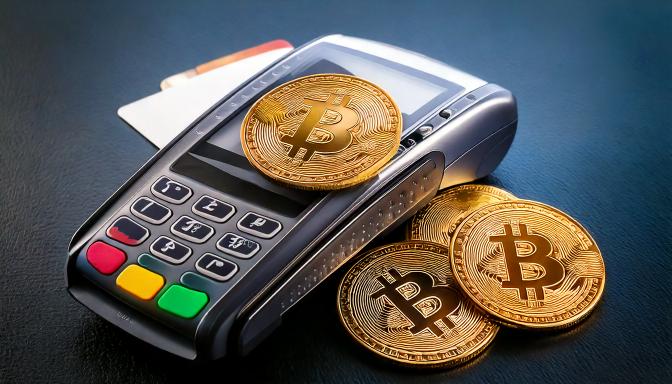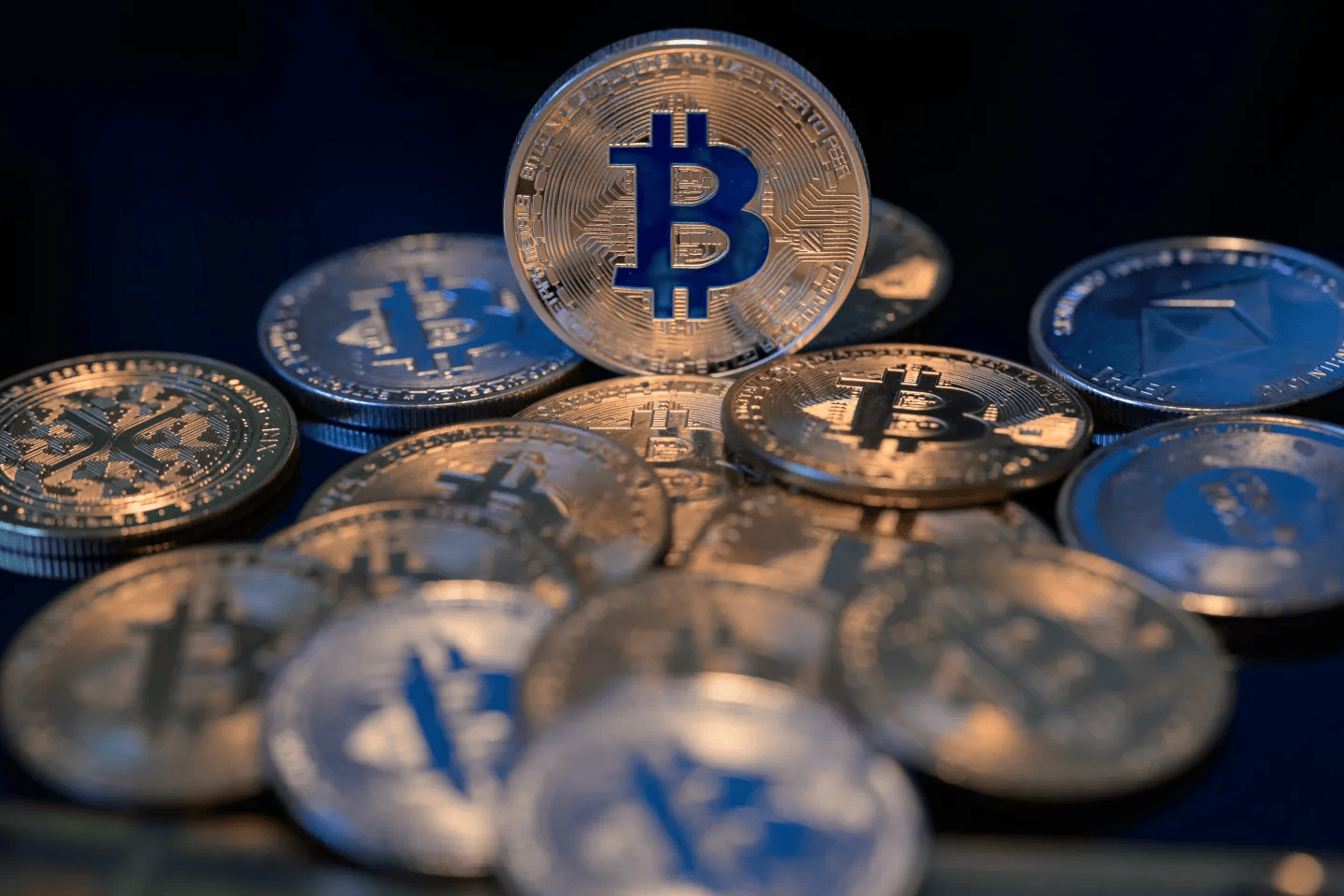Key Takeaways
- Bitcoin is becoming increasingly accepted as a payment method. Many businesses now accept Bitcoin directly or through payment gateways.
- A Bitcoin wallet is essential for holding, sending, and receiving Bitcoin. Choose a reputable wallet app that suits your needs.
- Bitcoin offers a convenient and accessible way to make payments and participate in the cryptocurrency ecosystem.
The world is fast becoming digital, shifting away from the norm of fiat, which comes with the stress attached to the traditional banking system. The emergence of Bitcoin, a decentralized mode of payment and transactions, is fast capturing the hearts of many worldwide due to its ease of use, ease, security, and 10X better than the regular banking system.
Bitcoin, the leading cryptocurrency, is accepted by many businesses as a payment method. While some companies struggle to accept it, these digital assets remain one of humanity’s assets in the financial world. Considering how countries are changing their policies for acceptance, businesses and other companies believe this is the future of finance.
Although some financial institutions are still determining these steps, over 15,000 businesses have started accepting Bitcoin for business with ecommerce sites, web-hosting sites, merchant businesses, and institutions all accepting BTC. Alternatives to Bitcoin and cryptocurrency wallets include debit cards or gift cards for purchases.
This article focuses on how to own a Bitcoin or cryptocurrency wallet and make payments with Bitcoin.
How To Use Bitcoin
Get a Bitcoin Wallet
A crypto wallet is a place where you can securely keep your crypto and carry out transactions such as buying and selling cryptocurrency assets. Common wallets include hosted or self-custodian wallets on trusted exchanges such as Coinbase, Binance, Bybit, and others. Decentralized wallets such as Trust wallet and Metamask can all be used to keep cryptocurrency assets and, finally, hardware wallets.
Now you have to decide on the type of wallet to own, be it a decentralized wallet a hot wallet; here is how to set up a wallet:
- Choose a platform you trust. Your focus should be on security, ease of use, and regulatory compliance.
- Create your account. Enter your information and choose a secure password. In the case of decentralized wallets, save your seed phrases in a secure place. Extra security measures are always recommended.
- Buy or transfer crypto. Most crypto platforms and exchanges allow you to buy crypto using a bank account or credit card. You can also transfer crypto to your new wallet for safekeeping.
Acquire Bitcoin
Now that you have a wallet, it’s time to purchase Bitcoin. The most popular cryptocurrency, Bitcoin, is widely available on many crypto exchanges.
One convenient option is to buy Bitcoin directly through the BitPay app. BitPay compares rates from multiple providers to offer you the best possible price.
Follow our simple instructions to send or receive Bitcoin to and from friends or family.
Spend Bitcoin
Now that your wallet is set and you own some Bitcoins, it’s time to carry out some transactions on BitPay using its various spending options:
- Direct Payments: Pay merchants that accept Bitcoin directly.
- Crypto Debit Cards: Load your crypto onto a debit card for everyday purchases.
- Gift Cards: Purchase gift cards for various retailers.
With Bitcoin, buying and selling, from cars to food delivery, has become very easy. If you prefer peer-to-peer transactions, Bitcoin’s P2P nature makes sending or receiving funds directly to or from other users easy.
Advanced Bitcoin Use
- Dollar-Cost Averaging (DCA): A popular investment strategy involves making regular, smaller Bitcoin purchases instead of large, rare ones. This can help reduce your average purchase price, manage risk, and improve investment returns or ROI beyond expectations.
- Cryptocurrency Trading: Cryptocurrencies are traded like traditional stocks, with traders speculating on price movements. However, crypto prices are generally more volatile than stocks or bonds and, as such, require a good understanding of these digital assets before investing.
- Bitcoin Mining: If you have powerful hardware, you can participate in Bitcoin mining. Miners validate transactions and earn Bitcoin as a reward. However, mining is highly competitive and resource-intensive.
- Running a Full Node: Contribute to the Bitcoin network’s security and reliability by running a full node. A full node is a computer that stores the entire Bitcoin blockchain history and validates transactions, helping the network operate independently.
Sending and Receiving Payments
To send or receive payments, use your wallet app. While wallets may differ slightly, the general process is:
Sending
- Open your wallet app.
- Select “Send” or a similar option, such as a withdrawal page, to select an asset to be sent.
- Enter the amount you want to send and sometimes Memo codes if required.
- Enter the recipient’s QR code or wallet address.
- Confirm the transaction.
Receiving
- Open your wallet app.Tap “Receive” or a similar option to copy the wallet address and possibly the network where funds are to be received.
- Share your wallet address (public key) with the sender.
- Payment appears in your wallet.
Exploring Other Cryptocurrencies
The cryptocurrency industry has evolved from depending on or using Bitcoin as the sole mode of transaction. Over the years, thousands of cryptocurrencies have emerged, including Ethereum (ETH), Solana (SOL), Ripple (XRP), Polygon (MATIC), and many more offerings. There are also many other exciting opportunities in the cryptocurrency world.
Ethereum (ETH) – The native token of Ethereum, a decentralized platform for creating smart contracts. Ethereum’s blockchain differs from Bitcoin’s, functioning more like a software development platform. This enables developers to build decentralized applications (dApps) and smart contracts. Ethereum is also known for its extensive Decentralized Finance (DeFi) ecosystem.
Other Cryptocurrencies: Explore a wide range of cryptocurrencies and blockchains. Instead of buying with fiat currency, consider swapping your Bitcoin for alternative coins.
How to Pay with Bitcoin
You’ll need a crypto wallet with Bitcoin funds to use Bitcoin for payments. Here are the main ways to pay with Bitcoin:
- Direct Payments to Merchants: Many businesses now accept Bitcoin directly.
- Peer-to-Peer (P2P) Payments: Send Bitcoin directly to another wallet.
- Crypto Debit Cards: Convert Bitcoin to fiat currency for card payments.
- Bill Pay Solutions: Use platforms like BitPay Bill Pay to pay bills with Bitcoin.
- Gift Cards: Purchase gift cards with Bitcoin for use at various retailers.
Understanding Bitcoin Payments
Bitcoin payments differ from traditional online payments, which often require sharing personal information or third-party systems. With Bitcoin, you provide the seller with their wallet address and await transaction confirmation on the blockchain. This process eliminates the need to share personal details and third-party payment systems, which could cause delays.
Offline Purchases
Many stores now accept Bitcoin payments. To pay in-store:
- Locate a Bitcoin-Accepting Store: Check for businesses that accept Bitcoin.
- Scan the QR Code: Use your wallet app to scan the QR code provided by the merchant.
- Confirm Transaction: Review the details and confirm the payment.
This process is similar to using a credit card, but you scan a QR code instead of handing over a physical card.
Where to Pay with Cryptocurrency
The cryptocurrency industry has evolved with a growing list of organizations and businesses accepting Bitcoin and other cryptocurrencies. Many businesses use cryptocurrency gateways to process crypto payments and ensure a smooth conversion to fiat currency.
Businesses Accepting Cryptocurrency:
- Microsoft
- PayPal
- Netellar
- SKrill
- Namecheap
- Overstock
- Starbucks
- Newegg
- AMC Theaters
- AT&T
Brick-and-mortar stores are also starting to accept cryptocurrency. Look for signs indicating which cryptocurrencies are accepted.
Pros and Cons of Paying with Cryptocurrency
Pros:
- Anonymity/Pseudonymity: Cryptocurrency transactions can be anonymous, reducing scrutiny from authorities.
- Peer-to-Peer: Reduces the need for third-party involvement.
- Lower Fees: Lower transaction costs compared to traditional payment methods.
- Global Accessibility: Can be used anywhere with an internet connection.
Cons:
- Transaction Fees: Network fees can be relatively high or you can explore stablecoins and other cryptocurrencies for alternative payment.
- Price Volatility: Cryptocurrency prices can fluctuate, affecting transaction values.
- Lack of Regulation: Cryptocurrencies are not regulated, increasing risks like scams and exchange failures.
- Irreversibility: Transactions are irreversible once confirmed.
- Risk of Loss: Losing your private keys can result in lost funds, and price fluctuations can lead to financial losses.
Remember: While cryptocurrency offers benefits, knowing the potential risks and limitations is essential.
Final Thoughts
Bitcoin and other cryptocurrencies offer a convenient payment method; you can consider what works for you and your location, such as transaction fees, potential regulations, and limited acceptance. While the cryptocurrency market offers benefits like global reach and peer-to-peer transactions, security and price volatility are factors to weigh. Carefully evaluate your needs and risk tolerance before using Bitcoin for payments.
Check out these related articles.























